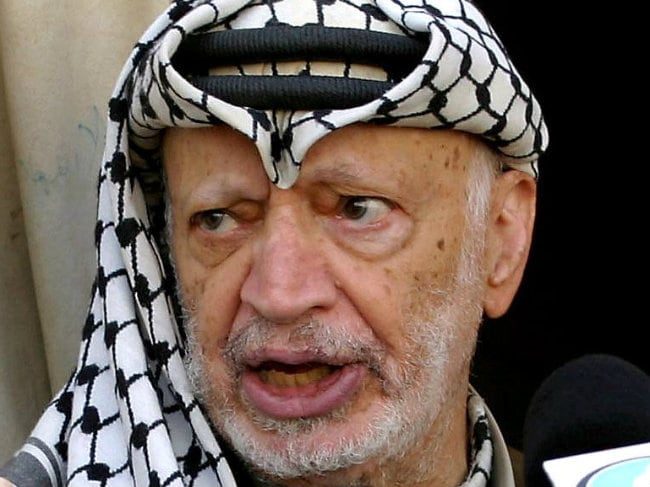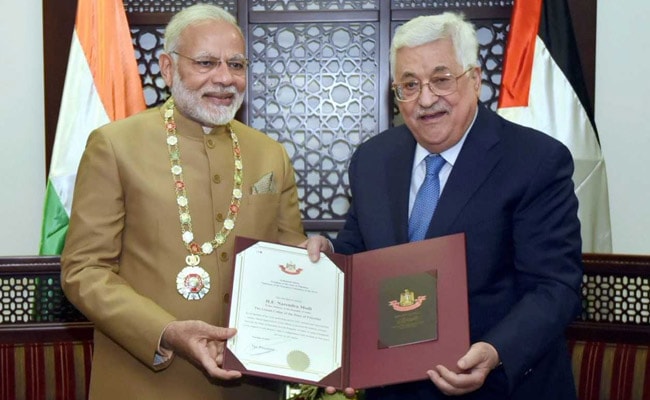
As the Hamas rocket attack on Israel and the brutal counterstrike splits the world into two camps, India finds itself in a difficult situation diplomatically. This comes at a time when New Delhi was pushing for a bigger role in the Middle East with regional alliances and a boost in diplomatic activities.
India Response To Israel-Gaza War
Amid reports of Hamas' rocket strike on Israel cities Saturday, Prime Minister Narendra Modi posted on X that he was "deeply shocked by the news of terrorist attacks". "Our thoughts and prayers are with the innocent victims and their families. We stand in solidarity with Israel at this difficult hour," he added.
The External Affairs Ministry has not come out with an official statement so far. External Affairs Minister S Jaishankar and the ministry's handle have only retweeted the Prime Minister's post.

The violence in Israel has sharply divided public opinion, with one camp slamming the terrorist attack and the other alleging that Israel's actions in Palestine had triggered this pushback. Against this backdrop, the Prime Minister's post is seen as a clear message of support for Tel Aviv.
This is also significant in the light of how China and Pakistan -- India's ties are strained with both -- responded to the violence. China has said it was "deeply concerned" by the "escalation of tension and violence" between Israel and Palestine. While there are no specific bilateral problems between Tel Aviv and Beijing, the latter has opposed Israel's construction activities in West Bank and East Jerusalem.
Pakistan Prime Minister Shehbaz Sharif has blamed Israel's "illegal occupation" for the cycle of violence in the region. "What else can one expect when Israel continues to deny Palestinians their legitimate right to self-determination and statehood?" he asked in a post on X.
India's Gulf Focus
The Israel-Gaza war comes less than a month after India, along with the US, Saudi Arabia, the UAE, France, Germany, Italy and the European Union announced the India-Middle East-Europe Economic Corridor during the G20 Summit in New Delhi. Prime Minister Modi had then said the connectivity project will be the basis of world trade for centuries. The project was also seen as a counter to China's Belt and Road Initiative project.
The flare-up in violence has put Saudi Arabia in a spot at a time when the US was mediating the normalisation of its ties with Israel. Hamas' attack in seen as a clear message to Riyadh. Saudi Arabia has called for an immediate halt to the violence and has said the kingdom had been warning of an "explosive situation as a result of the continued occupation and deprivation of the Palestinian people's legitimate rights", hinting that it would not pursue normalisation while overlooking Palestinian interests. This could potentially derail the ambitious plan.

India's relations with Saudi Arabia have seen a boost under the Narendra Modi government, with more bilateral visits and the signing of the Strategic Partnership Council (SPC) Agreement. PM Modi was conferred with the Kingdom's highest civilian honour. The Prime Minister's visits to Jordan, Oman, UAE, Palestine, Qatar and Egypt have underlined India's focus on maintaining a key presence in the Middle East.
India's priorities in the Middle East, earlier largely restricted to trade, are now strategic and political too as New Delhi tries to counter China and emerge as a key global player.
India On Israel vs Palestine
New Delhi's stand on the Israel-Palestine conflict has operated across a wide spectrum since Independence. India recognised the State of Israel only in 1950. This had many reasons. As a country that had experienced the horrors of Partition on religious lines, India was opposed to the creation of two nations on the basis of religion. Also, Prime Minister Jawaharlal Nehru had later said India refrained from not recognising Israel "because of our desire not to offend the sentiments of our friends in the Arab countries".
Over the years, India's relationship with Israel remained minimal while it engaged with the Yasser Arafat-led Palestine Liberation Organisation (PLO).

The governments of Indira Gandhi and Rajiv Gandhi continued to support the Palestine movement.
This support, however, led to criticism at home, especially after the Arab world took a neutral stand during the 1962 India-China War and backed Pakistan during the wars in 1965 and 1971.
Two factors led to a massive shift in India's Middle East strategy - Iraq's invasion of Kuwait and the fall of the Soviet Union. PLO's support to Saddam Hussein and dilution of the Non-Aligned Movement with the end of Cold War forced India to tune its policies as per the new realities. New Delhi established full diplomatic ties with Israel in 1992. The relations became stronger under the Atal Bihari Vajpayee-led BJP government. Israel became a friend in need when they provided India with urgent military supplies during the 1999 Kargil War.
Publicly, however, India continued to support the Palestinian cause. As recent as 2014, then External Affairs Minister Sushma Swaraj had said "we fully support the Palestinian cause while maintaining good relations with Israel".

India also hosted Palestine President Mahmoud Abbas in 2018. Abbas leads Fatah, which controls the West Bank. Hamas controls the Gaza Strip where the attack against Israel originated.
India's Challenge Now
The current spate of violence threatens India's big outreach in the region and pushes it to pick a side, something New Delhi is not fond of owing to its trade and strategic interests.
During the Ukraine conflict, India had avoided taking sides and constantly stressed that dialogue and not violence is the way forward. India was also criticised for buying Russian oil at a time when the Vladimir Putin-dispensation was facing sanctions from the West. Dr Jaishankar had articulated New Delhi's position on the matter, emphasising that its focus was to get the best deal possible for its citizens.
The problem at hand, however, is much more complex, owing to the depth of India's relations with the Middle East, whether they are strategic, economic or cultural. While Saudi Arabia is India's fourth largest trade partner, New Delhi is Tel Aviv's biggest arms customer. Ties between New Delhi and Tel Aviv have seen a major boost under the Narendra Modi government. In 2017, Prime Minister Modi became the first Indian Prime Minister to visit Israel. His visit was followed by an India trip by Israel Prime Minister Benjamin Netanyahu the next year.
The government's cautious approach to the Israel horror underlines the high stakes.
Track Latest News Live on NDTV.com and get news updates from India and around the world

